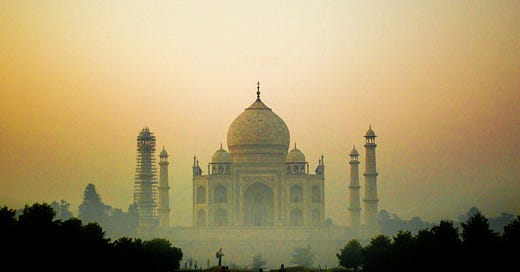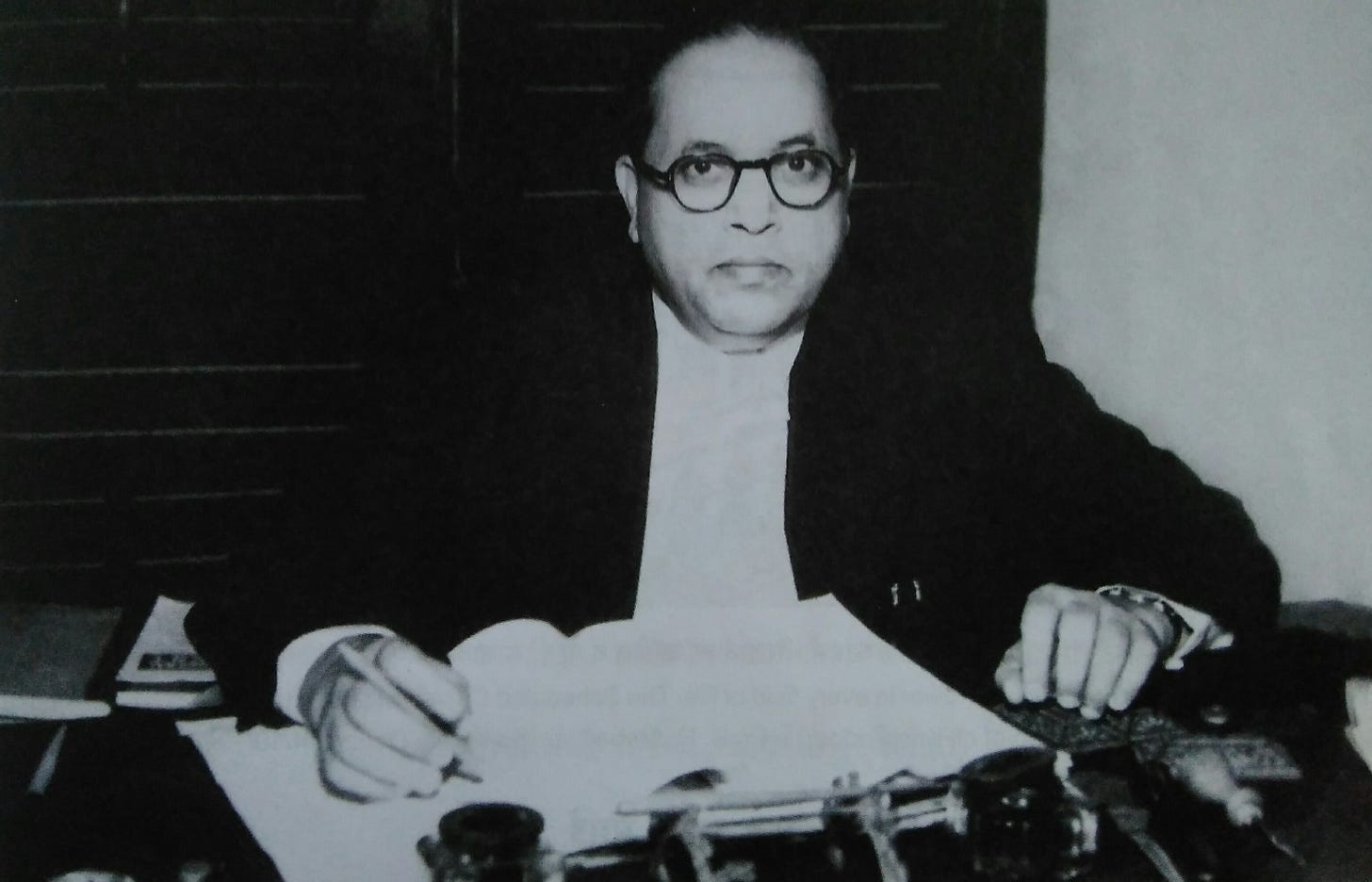Then, in the First Age of Hindustan Hamara, our India, we celebrated one another’s festivals, and believed, or almost believed, that all of the land’s multifariousness belonged to all of us. Now that dream of fellowship and liberty is dead, or close to death. A shadow lies upon the country we loved so deeply. Hindustan isn’t hamara any more. The Ruling Ring—one might say—has been forged in the fire of an Indian Mount Doom. Can any new fellowship be created to stand against it?—Salman Rushdie, on India’s 75th Independence Day
A bonus piece. From the archives. An audio version of this piece is available to paying subscribers here.
I first published this article in Areo Magazine in 2019, in response to growing illiberalism and the increasing popularity of Hindu ethnonationalism. (Skip these thoughts about more recent events and go straight to the article by scrolling down to the bold header text below.)
But, sadly, the article is not out of date. If anything, the situation has become worse and the struggle has become harder for those of us who believe fervently in the values of democracy, secularism and liberalism.
Despite the urgency of the need for a broad coalition, local opposition to the Indian far-right has been stymied by in-fighting and identity politics. I hope it can regroup and come out stronger than ever.
The in-fighting is understandable. Most of the heroes of the Indian independence movement and many of the most eloquent spokespeople for Indian liberalism today are high-caste Hindus, the beneficiaries of two millenia of strict caste endogamy and systemic discrimination that has left them better educated, more prosperous, more prominent than others, a true ruling oligarchy.
Casteism itself is, of course, identity politics in its purest, vilest form. And it is no mere historical relic. A nine-year-old Dalit boy was recently brutally beaten for touching a water pot reserved for caste Hindus: three days ago, he died of his injuries. That this is still happening is a disgrace. But even so Indians would be ill advised to get bogged down in the kind of identity politics and full-scale scapegoating of groups that has fractured the western left. We shouldn’t be fighting middle-class liberals born with caste privilege who are outspoken opponents of the BJP. The real enemy is clad in saffron. They are numerous and frightening and to defeat their movement will take all our ingenuity, determination, eloquence and united efforts.
The recent stabbing of Salman Rushdie and the muted and even sometimes celebratory response from too many Muslims has once again revealed the worldwide problem of Islamic extremism. Those Hindu fascists who want their fellow citizens to be disenfranchised or discriminated against use such events as justification for their aspiration to found a Hindu theocracy. Yet at the same time, Modi’s government has offered no statement of support for Salman Rushdie, who, although he is now a British citizen, is surely India’s most influential and eminent author of the post-Independence period. The Hindu right care about him only as a means of promoting their own bigotry.
We have to support Indian Muslims unreservedly, while never romanticising Islam itself. Both Hinduism and Islam can be practised peacefully. And both have deeply troubling teachings that can motivate evil.
Amid all this, I once again urge people to stop for at least one day and take inspiration from the imperfect people who fought for independence—especially the far-sighted B. R. Ambedkar—from their partial but still astonishing achievements and from the constitution they ratified: deeply flawed but still pointing towards goals far more worthy to aspire to than those of any authoritarian theocracy or ethnostate. India must remain a secular democracy. (Pakistan must become one.) That is the only way to bring greater prosperity and happiness to everyone. It is my most fervent wish for all Indians.
On Being a Proud Indian
We are little men serving great causes, but because the cause is great, something of that greatness falls upon us also.—Jawaharlal Nehru, 1946.
There is no rational reason to be proud of something you did not choose—like an accident of birth—or of achievements in which you had no part, like those of your ancestors. Yet most of us find it comforting to conceive of ourselves as part of a tribe and—however illogically—we want to take credit for the successes of its members. Few of us are athletes, but many of us feel invested in the fate of our local or national football or cricket team. Few of us can be heroes, but we feel a swelling of pride when eminent people produce great works of literature, make scientific discoveries, act with statesmanlike dignity on the world stage, embody our heroes on the big screen. Our own lives can be pedestrian and petty, but we have vivid imaginations that must feed on the doings of more prominent people, huge ambitions that can only be realised vicariously.
If the famous and heroic have something in common with us—because they are our co-religionists or compatriots, for example—we like to think that that shared characteristic helped them achieve greatness. Because that means that we, despite our own obscurity and mediocrity, have the possibility for greatness within us. And we don’t have to prove it, even to ourselves. We were born with it. This is even more true when such figures are prophets or deities. Gods demand our worship and, in return, promise us a bit of unearned, reflected glory.
So pride in being Indian, for many enthusiastic Modi supporters and for much of the Hindu right, means pride in being Hindu. The danger, however, with pride is that it often implies a sense of superiority over others, which can lead to bigotry and xenophobia. When pride in an ethnicity is combined with nationalism, it creates the heady but toxic cocktail of ethnonationalism, which is the belief that a geographical region is the property of only one of the groups that make their home there (usually the majority group) and the others should be—at best—discriminated against as second-class citizens. When this dangerous ideology takes hold, it generally leads to inter-group conflicts, the oppression of minorities, political polarisation, divisiveness, fear and eventually, inevitably, violence.
There is probably no country in which the resurgence of ethnonationalism is more dangerous than in India: one of the most culturally, ethnically and religiously diverse of nations, around 15% of whose citizens are non-Hindus, including the world’s second largest population of Muslims. And few countries have experienced more bloody intergroup conflicts in the recent past. The fighting between Hindus, Muslims and Sikhs that accompanied the country’s foundation left around two million dead and created eight million refugees.
Yet, despite all this, Indians have a lot to be proud of. They have upheld the world’s largest democracy for seventy-five years. The odds against this can scarcely be overstated. India is an extreme statistical outlier among democratic countries: in its size, poverty and diversity. The horrors of Partition can lead us to see the birth of the country as a division—a cracking, as Bapsi Sidhwa famously put it. But it was also an extraordinary victory for unification. Before Independence, India (and Pakistan) were a patchwork of British-ruled territories, interspersed with more than 250 princely states—all of which eventually acceded to one of the two fledgling nations. It also contained—and contains—a dizzying number of ethnic and religious groups. Even Hinduism, the major religion, traditionally splits its adherents into castes: endogamous communities which, as DNA analysis has shown, have rarely intermarried over the course of two millennia. India is kaleidoscopic.
Yet, after the British withdrew—taking almost all their military and civil service personnel with them—India did not descend into chaos, as many predicted.
Instead, against all the odds, a nation was formed and it was neither a theocracy nor a military dictatorship. One of the world’s most intensely religious countries opted for a secular constitution—whose drafting committee was chaired by a Dalit (formerly called untouchable) the erudite, eloquent and snazzily dressed B. R. Ambedkar. A territory without a common tongue, with twenty-two official languages—and, estimates suggest, at least four hundred unofficial languages—united into a single nation. A country home to one fifth of humanity, and one third of the world’s poor at the time of its founding (India has since significantly reduced its proportion of poor) established a stable, multi-party democracy.
And democracy has held for seventy-five years today—no mean feat. Compare Argentina (of which I am a citizen), another former colonial nation, more than a century older (founded in 1810). Their longest period of sustained democracy to date (from 1983) has lasted for less than half that time.
These are astonishing achievements. The existence of India is a testament to people’s ability to live together, peacefully, creating, from a vertiginous array of different cultures and beliefs, a single identity: Indian. Now that’s something to be proud of.
Happy Birthday!





